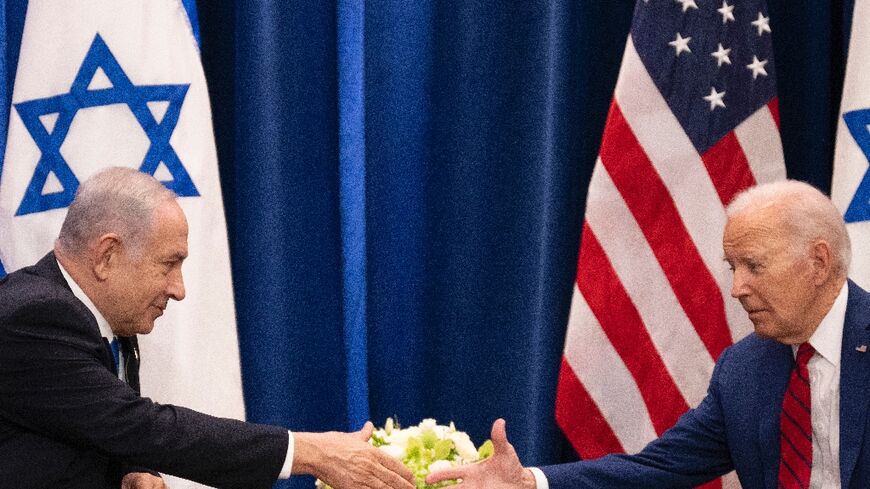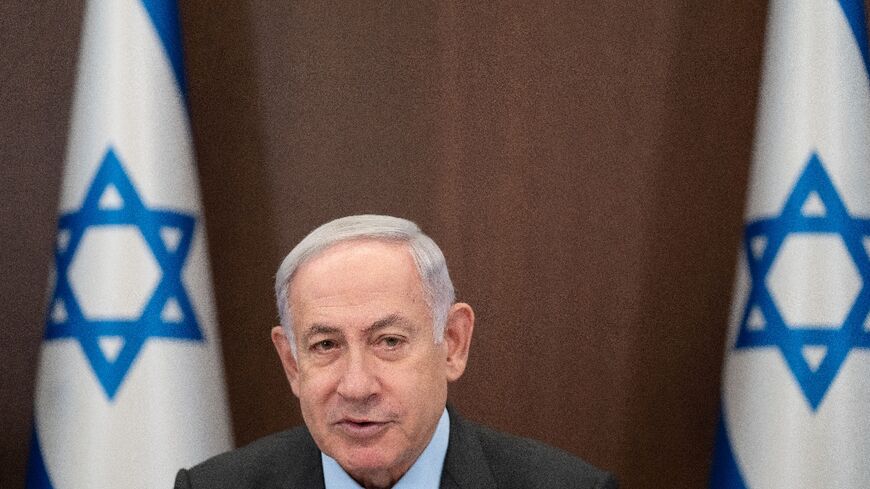Biden, Netanyahu finally meet to smooth over 'concerns'

US President Joe Biden and Israeli Prime Minister Benjamin Netanyahu tried to smooth over tensions at talks Wednesday, hailing "unbreakable" ties despite Biden's concerns over the state of Israeli democracy.
The veteran leaders shook hands against a backdrop of flags in New York, as they met for the first time since Netanyahu was re-elected in December at the head of a hard-right government pushing controversial judicial reforms.
Keen to get Netanyahu to agree on a mega-deal that would normalize ties between feuding US allies Israel and Saudi Arabia, Biden focused Wednesday on rapprochement instead of reproach.
Biden "reiterated his concern about any fundamental changes to Israel’s democratic system, absent the broadest possible consensus," the White House said after the meeting.
But he also "reaffirmed the unbreakable bond between the two countries which is based on the bedrock of shared democratic values," and restated Washington's "iron-clad" commitment to Israel's security.
The US president extended an olive branch by formally inviting Netanyahu to Washington by the end of the year -- having snubbed him this time by meeting on the sidelines of the UN General Assembly.
Democrat Biden -- who had previously criticized Netanyahu's government as "extremist" -- said at the start of the meeting that he would discuss "hard issues, that is, upholding democratic values."
Relations between Netanyahu and the Biden administration have been rocky ever since the Israeli leader made his political comeback at the head of a coalition of hard-right and ultra-Orthodox parties in December.
Protests have erupted in Israel over the government's plans to limit the power of the judiciary.
- 'Historic peace' -
Ties with Washington have meanwhile been further strained by the Israeli government's expansion of Jewish settlements in occupied Palestinian territories.
But both sides have been keen to smooth over a relationship that has seen the United States give long-term support for the Jewish state, its key ally in the Middle East.
Biden has also been pushing Israel to agree to a coveted peace deal with Saudi Arabia.
"I think that under your leadership, Mr. President, we can forge a historic peace between Israel and Saudi Arabia," Netanyahu said.
"Such a peace would go a long way for us to advance the end of the Arab-Israeli conflict, achieve reconciliation between the Islamic world and the Jewish state and advance a genuine peace between Israel and the Palestinians."
The US and Israeli leaders also agreed on a united front against their shared foe Iran, ensuring that Tehran "never acquires a nuclear weapon," and to counter Iranian "proxies" in the region, the White House said.
The warm statements after months of tensions reflected the fact that "neither Biden nor Netanyahu can afford a bad meeting," Aaron David Miller, of the Carnegie Endowment for International Peace think tank, said in a commentary.
In a seeming snub to Netanyahu, Biden had in July hosted the Israeli president, Isaac Herzog, a political moderate, in the Oval Office.
There was even a squabble earlier this year after Netanyahu said he had been invited to the White House, with the White House saying merely that he and Biden would meet "in the United States."





